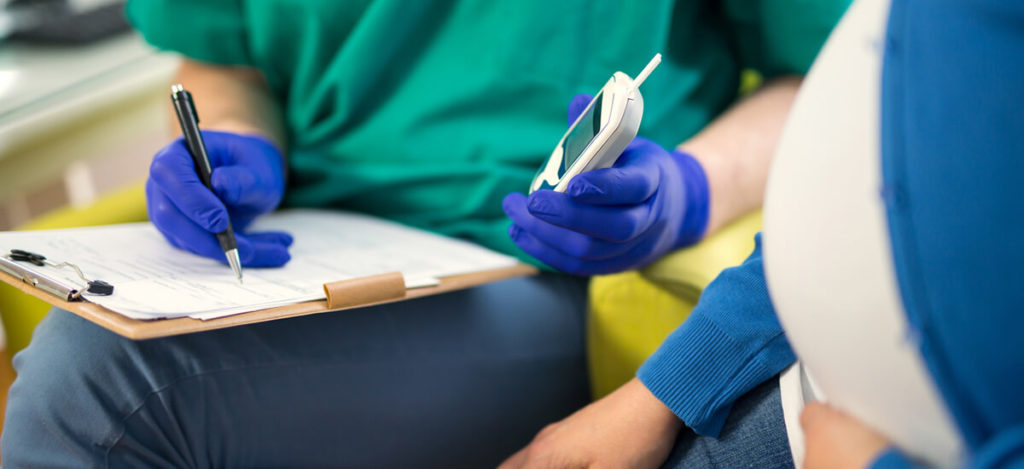The purpose of this study is to examine the effectiveness and safety of lispro protamine suspension as compared to insulin detemir as basal plus mealtime insulin therapy in patients with type 1 diabetes.
Official Title
Comparison of Two Basal Insulin Analogs (Insulin Lispro Protamine Suspension and Insulin Detemir) in Basal-Bolus Therapy for Patients With Type 1 Diabetes
Conditions
Type 1 Diabetes Mellitus
Study Type
Interventional
Study Design
Treatment, Randomized, Open Label, Active Control, Parallel Assignment, Safety/Efficacy Study
Further Details
Primary Outcome Measures:
- Change in HbA1c from baseline (Visit 2) to 32 weeks. [Time Frame: Visit 2 to 32 weeks]
Secondary Outcome Measures:
- Actual and change from baseline HbA1c value. [Time Frame: 8,16, 24, 32 Weeks]
- Percentage of patients with HbA1c less than or equal to 7.0% and HbA1c less than or equal to 6.5% at endpoint. [Time Frame: 32 Weeks]
- 7-point self-monitored blood glucose (SMBG) profiles and glycemic variability from these profiles at endpoint. [Time Frame: 32 Weeks]
- The incidence, 30-day adjusted rate, and 1-year adjusted rate of self-reported hypoglycemic episodes (throughout the study and at endpoint), including nocturnal and non-nocturnal; and severe hypoglycemia. [Time Frame: 32 Weeks]
- Absolute body weight (kg) and incremental weight change from baseline to endpoint. [Time Frame: 32 Weeks]
- Treatment-emergent adverse events (TEAEs). [Time Frame: 32 Weeks]
- Insulin dose (total and by component [basal and bolus]). [Time Frame: 32 Weeks]
Study Start
June 2007; Expected completion: July 2008
Eligibility & Criteria
- Ages Eligible for Study: 18 Years and above
- Genders Eligible for Study: Both
Inclusion Criteria:
- Clinical diagnosis of type 1 diabetes for one year or more
- Age 18 years or older
- Body mass index (BMI) less than or equal to 35 kg/m2
- Have a hemoglobin A1c (HbA1c) 1.2 to 2.0 times the upper limit of the normal (ULN) reference range within 30 days prior to Visit 1 or collected and analyzed at a local laboratory at Visit 1
- As determined by the investigator, are capable and willing to do the following: perform self monitoring of blood glucose (SMBG), complete patient diaries as required for this protocol, use the insulin injection device(s) according to the instructions provided, are receptive to diabetes education, comply with the required study visits.
Exclusion Criteria:
- Have taken any oral antihyperglycemic medications (OAMs) within 3 months prior to Visit 1.
- Have had more than one episode of severe hypoglycemia, as defined in the Abbreviations and Definitions section of the protocol, within 6 months prior to entry into the study
- Are pregnant or intend to become pregnant during the course of the study or are sexually active women of childbearing potential not actively practicing birth control by a method determined by the investigator to be medically acceptable or women who are breastfeeding
- Are receiving chronic (lasting longer than 14 consecutive days) systemic glucocorticoid therapy (excluding topical, intra-articular, intraocular, and inhaled preparations) or have received such therapy within the 4 weeks immediately preceding Visit 1.
- Have received treatment within the last 30 days with a drug that has not received regulatory approval for any indication at the time of study entry.
- Miranda, New South Wales, 2228, Australia; Recruiting
- Wollongong, New South Wales, Australia; Recruiting
- Box Hill, Victoria, 3128, Australia; Recruiting
Total Enrolment
356
Contact Details
Australian Locations
For more information on this study, refer to the Lilly Clinical Trial Registry
All content and media on the HealthEngine Blog is created and published online for informational purposes only. It is not intended to be a substitute for professional medical advice and should not be relied on as health or personal advice. Always seek the guidance of your doctor or other qualified health professional with any questions you may have regarding your health or a medical condition. Never disregard the advice of a medical professional, or delay in seeking it because of something you have read on this Website. If you think you may have a medical emergency, call your doctor, go to the nearest hospital emergency department, or call the emergency services immediately.







